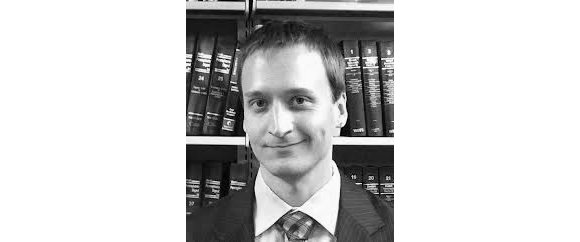Growing up with a Commodore 64 and a Macintosh LC, Leonard J. French discovered his aptitude for technology at a young age. He was the go-to guy for family and friends with tech problems and when he started undergrad, he gravitated to engineering and, later, information technology.
After 10 years in computer programming, French applied to Widener Law in Harrisburg. Four years of night school and 100,000 miles later, he launched his Allentown practice, specializing in intellectual property, the nexus of creativity, technology and law.
Today, French is involved in a so-called “Bellwether trial,” a potential landmark case that could set legal precedent for future claims on online piracy.
Keystone Edge (KE): Can you explain exactly what is meant by intellectual property and why it is so important in the new economy? Why do entrepreneurs need to protect their intellectual property?
Leonard French (LF): “Intellectual property law” refers to the laws that protect and govern the intangible things we create using our minds: stories, music, art, pictures, architecture, movies, inventions. Our forefathers, both in the U.S. and abroad, realized that there was social value in these things and created a system of laws to protect certain ideas and their expression in order to incentivize the creation of more (yet provide a way for some ideas to become public property after a time). These are the laws of copyrights, trademarks, patents and trade secrets, used to “promote the useful arts”.
When someone has an idea they wish to pursue, they must invest their time, energy and money into making that idea a reality. Without protecting their creation, they risk the benefits that may come from their idea. Many forms of protection are fairly simple, like basic copyright protection. Others, like protecting branding through trademarks, or protecting an invention through patents, are more complicated. There are even more complicated examples of intellectual property law, such as using a copyright to protect sales of your watches around the world or operating a business whose job it is to hold and license inventions through patents.
KE: You are currently defending individuals and businesses against accusations of online copyright infringement. Can you explain in lay terms the significance of this “Bellwether case?” What are its potential legal precedents and implications?
LF: My practice is currently focused on defending those accused of copyright infringement because of the immediate need in this area. Since 2011, one particular set of plaintiffs has filed hundreds of lawsuits across the U.S. against Internet subscribers. The plaintiffs are copyright holders. But because of their strong-arm tactics, often analogized to legal extortion, they have earned the name 'copyright trolls.'
The Bellwether cases in Pennsylvania are among the first involving the BitTorrent software to make it to a trial. These cases involve allegations of file sharing via the BitTorrent protocol. At issue is whether an accusation based upon a subscriber's Internet protocol (IP) address is enough to prosecute a civil claim for copyright infringement. With over 400 cases like these around the U.S., and with each case usually involving multiple defendants, the stakes are pretty high. We currently have many different decisions, all in the Federal District Courts, regarding how these cases may or may not proceed.
Here in PA, in the Bellwethers, the judge has decided to proceed in an expedited trial as an example (which is why they're called the “Bellwethers”). Without clear statutory law or appellate precedent, cases are left up to the individual judge's discretion.
Various legal issues may be decided as we proceed: May an IP address be used to obtain an Internet subscriber's identity based on a copyright accusation? Has the plaintiff followed all the necessary rules and procedures to maintain a copyright action? How far may a plaintiff dive into the accused's personal life and computers to support their accusation? How much money might a file-sharer have to pay if found liable for copyright infringement?
KE: With information technology advancing so quickly, what do you think lies ahead in terms of intellectual property rights?
LF: Our laws are lagging behind our new abilities to communicate and distribute information quickly. In copyright law, we are already seeing technology being used to sell books, music and movies, in ways never seen before. Authors are self-publishing electronic books, music is available by the song, and some movies are being released to the living room before the big screen. But we've lost some rights because of that.
What happens when I'm done with a movie and want to give it or sell it to someone but I only have a licensed electronic copy? What becomes of books or other material that's no longer available from the original author, but still has value (otherwise known as orphaned works). How will our patent system deal with the plethora of software patents that are being granted on basic communication technologies that are now the frequent subject of litigation between major tech companies? (I'm thinking of Apple and Samsung at the moment) And how does all this change impact how the smaller entities compete with the larger ones?
ELISE VIDER is Innovation & Jobs News editor for Keystone Edge. Send feedback here.
